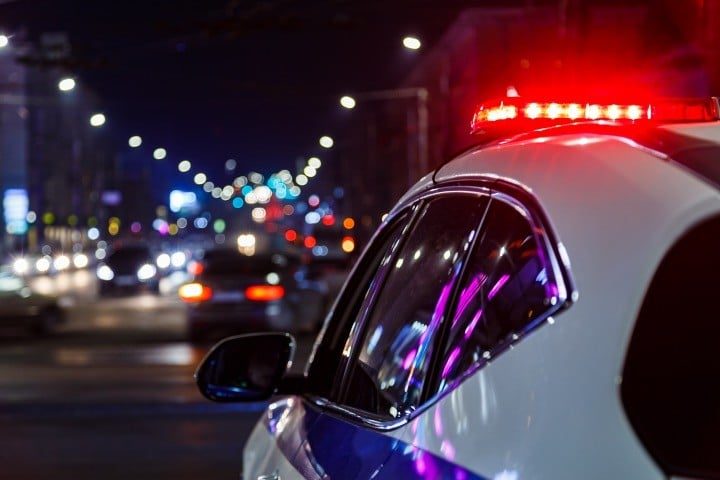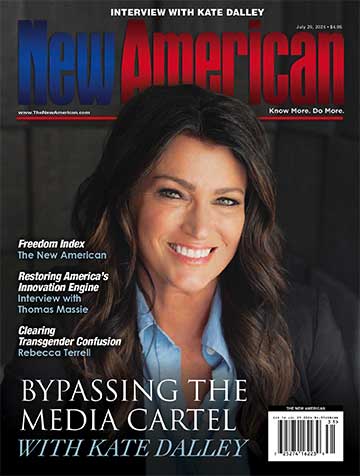
There was a race factor in the death of Tyre Nichols, but it wasn’t “white-supremacist systemic racism.” Rather, when the 29-year-old was killed by five Memphis cops on January 10, he became part of an all-too-common pattern — the phenomenon whereby 92 percent of black homicide victims are killed by other blacks.
What’s more, averred commentator Jason Whitlock (who is black, by the way), the Memphis tragedy and the violence committed by young black males generally mirror each other in another way: They both reflect the culture of fatherlessness/single motherhood that, in particular, plagues the black community. (Seventy-three percent of black children are born out of wedlock.)
Whitlock made his comments Friday evening on Fox News’ Tucker Carlson Tonight. Addressing the irrational reaction to the Nichols killing, Whitlock stated, “I don’t get what people are protesting about. These are five black officers; the victim is black, the police chief is black [and the city council is majority black]. The police have been fired and charged, and they will be convicted, I would assume, by a predominantly black jury in a city that’s 65 percent black. So the system is going to work here.”
Whitlock then referenced the media’s gratuitous, race-oriented coverage of the matter and stated that if they really want the event front and center, a good starting point is with the real “racial element of this.” Continuing, he then explained that this
is a story about young black men and their inability to treat each other in a humane way. Everybody involved in this on the street level was either 24 to 32 years old — everybody. It was a group of young black men, five-on-one; looked like gang violence to me.
It looked like what young black men do when they’re supervised by a single black woman. And that’s what they got going on in the Memphis Police Department. They’ve elected some, or put some, black woman in charge of the police force, and we are getting the same kind of chaos and disunity and violence that we see in a lot of these cities run by single mothers.
If we want to discuss the breakdown of family that leads to disrespect for authority that causes you to resist the police and run from the police and not comply with the police, because you resist authority at all times, because there was no male authority in your home, let’s have that discussion. [“Age-restricted” (i.e., partially censored) video can be seen on YouTube here.]
Whitlock has been criticized because Memphis police chief Cerelyn Davis isn’t single, but is married with a daughter. In fairness, though, Whitlock might have meant, as his phraseology could suggest, that the situation is analogous to “what young black men do when they’re supervised by a single black woman.”
This isn’t spin. Remember, Whitlock either knew Davis’ marital status or he didn’t; if the latter, it’s unlikely he’d assume she’s definitely not married. Remember, too, that Whitlock is a staunch traditionalist who has often emphasized that America’s men must reclaim masculine roles (such as police chief!) and step up to the plate; in fact, he frequently criticizes men for failing in this respect.
Regardless, such focus is actually a distraction from Whitlock’s larger point. To wit: Given that America’s black community has sometimes been called matriarchal, relevant here is G.K. Chesterton’s observation that what “is called matriarchy is simply moral anarchy, in which the mother alone remains fixed because all the fathers are fugitive and irresponsible.”
Does this not well describe a community in which almost 60 percent of children live without their biological fathers?
(Note: Much-maligned “patriarchy” serves to keep fathers in the home by controlling male as well as female behavior.)
This said, there’s yet another distraction here: the disproportionate focus on the Nichols killing itself. Again, the cops in question are being held accountable. And anyone sincerely concerned about blacks being murdered in Memphis should consider something.
The city “set a record for murders in 2021, with 346—breaking the previous record of 332, set in 2020,” lamented The Atlantic’s David A. Graham in November.
And guess what? Most all Memphis’ homicide victims are black — and virtually none of them were killed by cops.
So are the police really the problem here?
Only, perhaps, insofar as the anti-law-enforcement Left has made them so. That is, according “to FBI data, Memphis was the most violent metropolitan area in the United States in 2020,” Graham also writes. Why? One reason:
The city has a smaller police department now than in 2015, Graham further informs, “and police departments around the country are struggling to recruit and retain good officers—a task that’s harder in a department under a consent decree in a city with high rates of violent crime and relatively low pay.”
Did this result in Memphis dumbing down its standards for police (already diminished by long-standing affirmative-action imperatives)? And were the cops who killed Nichols the kind of lower-standard officers that result from lower standards?
There are a few things we don’t have to wonder about, however. First, because of the handcuffing of police, the demonization of them, recruitment difficulties, and lowered standards, more black Americans are dying in Memphis (and elsewhere). Second, this is the result of the Left’s anti-police movement, as represented by BLM and the Democratic Party. Third, since it’s now again being advanced, even more black people will be killed.
In other words, it isn’t just five Memphis cops who have blood on their hands.




